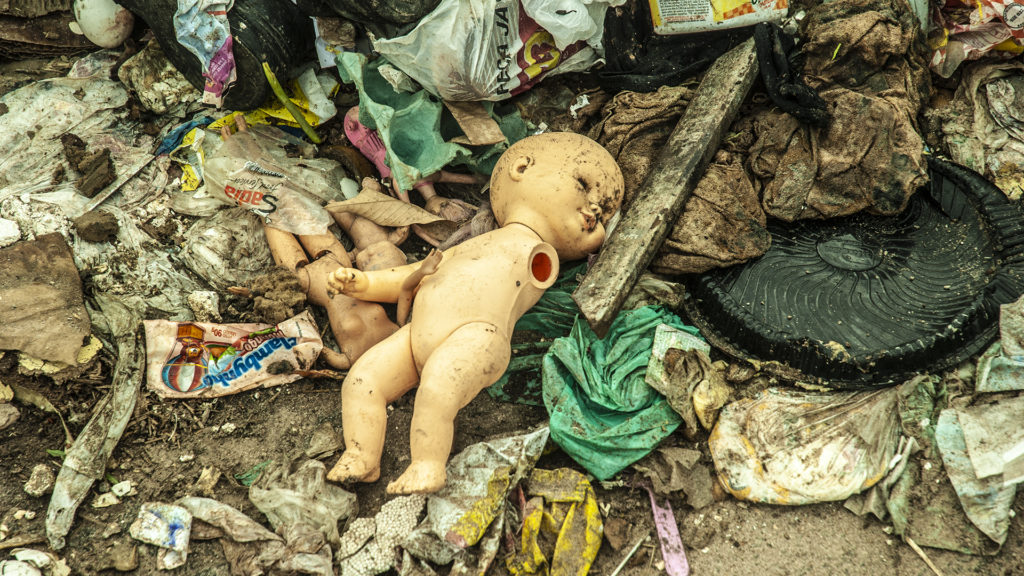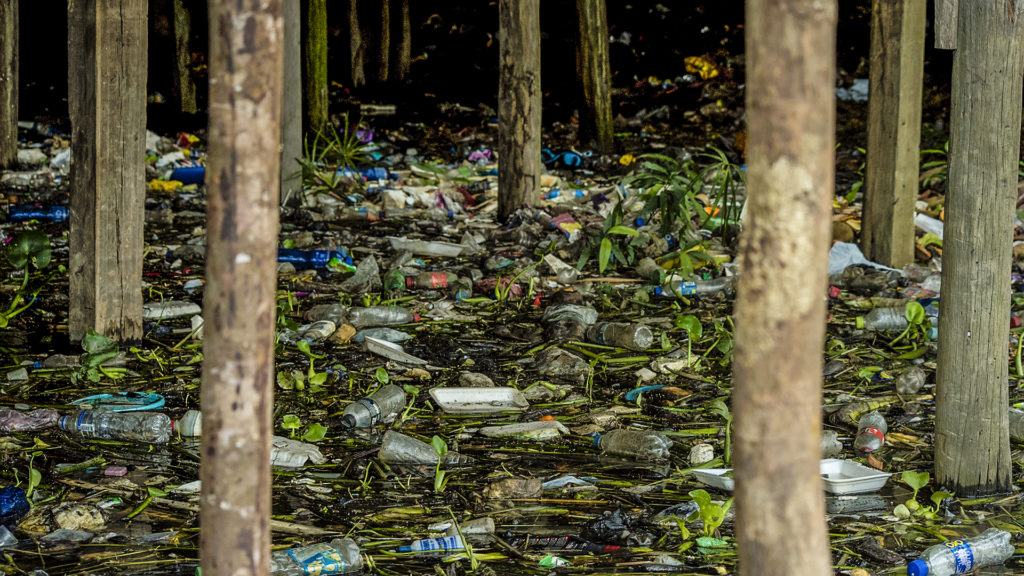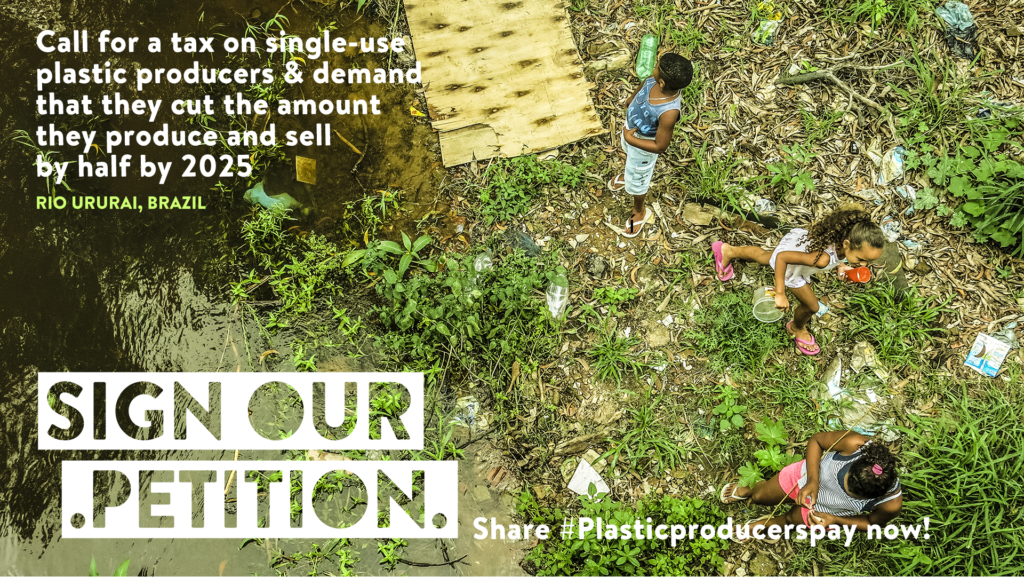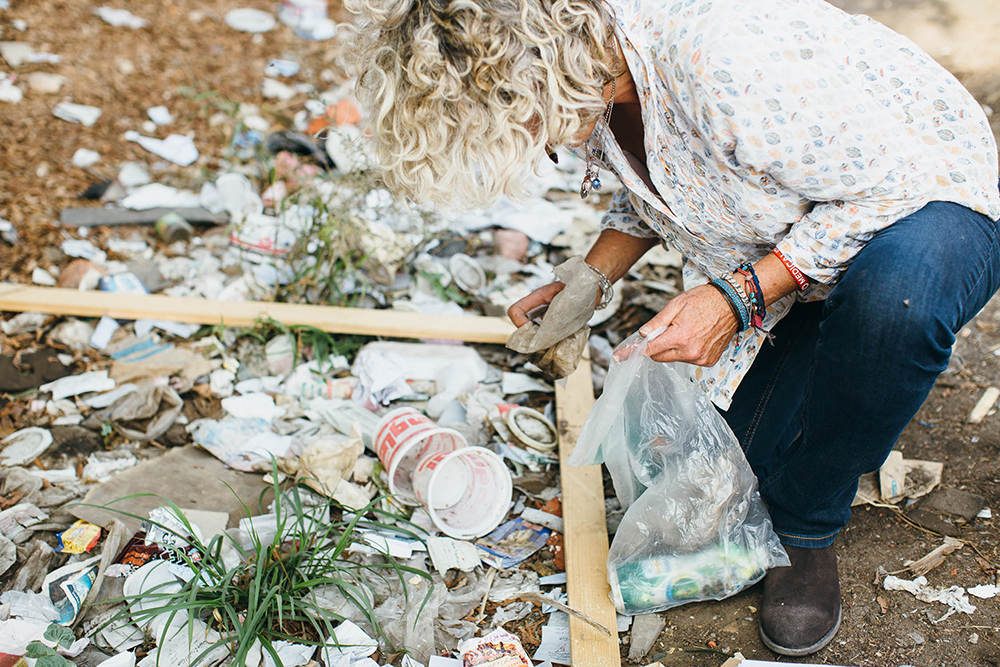Our founder Melinda Watson set up RAW Foundation over a decade ago with one goal in mind – to rid the world of pointless plastic. Her work has taken her all around Africa to investigate plastic pollution and she has recently returned from a four-month expedition around South America.
Melinda expected to find a lot of plastic on her journey, but she remains shocked by the sheer ubiquity of plastic pollution from global brands, even in the most remote places.
That’s why she has now set up the #TaxPlasticPolluters Campaign aimed at multinational companies. Despite what she’s seen, she still holds a deep belief that a better world is possible.
Here she tells her story in her own words…
RAW in South America – four epic months summed up in a nutshell
Leading a world first expedition, I set off in November last year with a small team to circumnavigate and track the world’s plastic footprint across South America. Three years on from a similar study from Cairo to Cape Town in Africa, the purpose was to shine a spotlight on the sheer scale and transboundary nature of pointless plastic pollution.
What types and quantities of plastic waste were there? Where did they originate? What were the impacts? What is being done about it? And what are the solutions?
Over the course of four months, we travelled over 17,000km clockwise from Salvador in Brazil through Argentina, Patagonia, Chile and Bolivia to Lima in Peru – and finally the length of the Amazon from Iquitos to Macapa and Belem – bush-camping and sleeping in riverboat hammocks most of the way.
From the rubbish tips of Rio de Janeiro, Buenos Aries, and Ushuaia (at the end of the world) to Santiago, La Paz, Cusco and Lima – to fly-tipping and the rivers of plastic in the waterless Atacama Desert – to the world’s largest salt flats at Uyuni, the sacred waters of Lake Titicaca and the mighty Amazon River, the scale of mismanaged plastic debris, pollution and the proliferation of western brands was staggering.
The one simple question that faced us was – whose mismanaged waste is it reallyand who is ultimately responsible for it?

Clearly visible in this tsunami of disposable plastic – the items, logos and images of these multinational consumer brands – show where the responsibility lies. Along with many others, plastic waste from Coca Cola and Nestlé – two of the world’s top-three plastic polluters – turned up in our samples virtually everywhere.
These brands, with their throwaway packaging, are responsible for promoting and perpetuating a modern throwaway culture. Their mass production drives overconsumption across the world – which in turn is overwhelming communities and our planet with pointless plastic pollution.
The dangerous and depressing job of tracking plastic waste
We (literally) dived into dangerous rubbish dumps, located landfill sites and surveyed source-to-sea debris. We opened government official doors, met waste ministers and reviewed reuse and recycling initiatives. As well as carrying out waterway, canal, river and beach surveys and cleans, we collaborated with local communities to probe pristine environments and perform microplastic trawls.
Every 100km, we recorded samples of rubbish within a 1m quadrant, next to the road, track or river. The data we collected was so detailed that we have been able to identify the extent of the impact of individual items and global brands which collectively form the world’s plastic waste.
In some respects, our results were not surprising in that the Amazon is thought to carry around 60,000 tons of plastic trash every year into the Atlantic. What was alarming, was the extent of plastic pollution throughout the Amazon Basin – everywhere we went the myth of a pristine Amazon rainforest was well and truly busted.
The poorest are paying the price of our plastic love affair
Our use of plastic in the West is affecting communities in the most remote areas of the Amazon – they don’t want it and, worst of all, they have no way of getting rid of it. Having never relied on plastics traditionally, these communities are struggling with the ever-growing volumes of plastic waste and polluted water.
Of equal concern, inadequate water treatment means they are now reduced to buying bottled water themselves. While I find that idea deeply disturbing, I am sorry to say I don’t find it surprising.

And it doesn’t stop there. The appalling practice of waste trade between industrialised developed and developing economies is exacerbating this disproportionately.
The inconvenient truth we have to face is that ‘convenience’ has an unacceptable cost. The situation is out of control – the poorest people and the ecosystems on which we all depend are paying the price.
It’s time to face reality
Although the collective and individual efforts to collect and recycle single-use pointless plastic and packaging is worthy, this is not a solution and never will be. The fact is that recycling alone will never be sufficient to address the rising scale of the problem.
Since we began our love affair with this ubiquitous material in the 1950s, a staggering 91% of the plastic waste ever discarded has either been incinerated, openly burnt, ended up in landfills, dumps, the oceans or the natural environment. Only 9% has been recycled globally. [1]
The proliferation of single-use plastics has to STOP
We need to put the brakes on right now. As the major source of the crisis, the time has come to firmly place the responsibility where it truly lies – with the corporations and plastics producers.
They must now go beyond pledges to improve recycling and commit to massively reduce and phase out the amount of single-use plastic and packaging they produce and sell by half by 2025.
This will mean an end to business models which rely on disposable products and one-way packaging, and the start of a new paradigm. One that will allow the co-creation of alternative delivery systems – which typically have reuse and refill at their heart.
My manifesto for change
My travels have made it clear to me that action needs to be taken on every level: the plastic producers, the government, and us – the consumers.
This is why I have set out a manifesto for change, starting with the #TaxPlasticPolluters petition aimed at multinational corporations. We need you to add your voice and urge government to act.
Sign the #TaxPlasticPolluters petition here

The actions I’m urging multinational corporations to take:
- Disclose the number of single-use plastics[2] they produce and sell by 2020
- Reduce that amount by half, country by country, by 2025
- Prioritise reusable packaging and develop innovative delivery systems to encourage high levels of reuse or high-quality one-for-one recycling
- Replace plastic products and packaging with clean, reuse materials and circular economy solutions for a rapid reuse transition
- Establish Operation Clean Sweep as guidance to prevent plastic pellet loss
- Invest in waste clean-up and clean water infrastructure projects in developing countries
- Work in partnership with organisations and waste pickers to establish collection and recycling systems, create safe jobs and restore dignity
- Reimagine, innovate and explore business models that won’t harm people, the earth or the ocean.
The actions I’m urging all governments to take:
- Ban and phase-out all single-use plastics by 2025
- Ensure that export of domestic waste is minimised and where residual plastic waste is exported, that appropriate recycling facilities are in place in receiving countries by 2022
- Make it compulsory for companies to disclose the number of single-use plastics they produce and sell by 2020
- Introduce an Extended Producer Responsibility (EPR) tax on single-use plastics by 2020
- Ringfence the tax for waste clean-up, clean water infrastructure projects and technical assistance at home and abroad
- Phase out the use of fossil fuel subsidies, including fiscal support and public finance, which help drive the production of virgin plastic
- Introduce policies and set targets towards establishing clean, reuse materials and circular economy solutions for a rapid reuse transition
- Establish Operation Clean Sweep as guidance to prevent plastic pellet loss
- Work in partnership with organisations and waste pickers to establish collection and recycling systems, create safe jobs and restore dignity
- Reimagine, innovate and explore business models that won’t harm people, the earth or the ocean.
Sign the #TaxPlasticPolluters petition here and urge government to act NOW.
The actions I’m urging consumers to take:
- First and foremost, sign and share our #TaxPlasticPolluters campaign to call for a tax on single-use plastic producers and demand that they cut the amount they produce and sell by half by 2025
- Refuse single-use plastic products and packaging by
- Cutting out non-essential single-use items like cotton buds, glitter, plastic cups, plates and cutlery, and plastic straws
- Using reusable and refillable alternatives like water bottles, bags and cups
- Buying groceries and toiletries in bulk with less or no packaging or compostable alternatives
- Choosing ethical companies who are committed to reducing plastic use
- Take part in community initiatives to tackle plastic waste, such as community litter collections or local beach clean-ups
- Hold governments to account for their responsibility in tackling the plastic pollution crisis
- Demand that multinational corporations take responsibility for the plastic they produce especially in developing countries
- Write to elected representatives (in the UK via www.writetothem.com) about plastic waste concerns and ask them to take action.
Photo credits: Alexander Mourant, Andy Hughes and Elizabeth Streeter
[1] Geyer R et al (2017) ‘Production, use, and fate of all plastics ever made’, Science Advances 3 (7). http://advances.sciencemag.org/content/3/7/e1700782
[2] The government’s proposed definition of single-use plastics is ‘all products that are made wholly or partly of plastic and are typically intended to be used just once and/or for a short period of time before being disposed of.’ HM Treasury (2018) Tackling the plastics problem summary of responses to the call for evidence. https://assets.publishing.service.gov.uk/government/uploads/system/uploads/attachment_data/file/734837/Plastics_call_for_evidence_summary_of_responses_web.pdf




